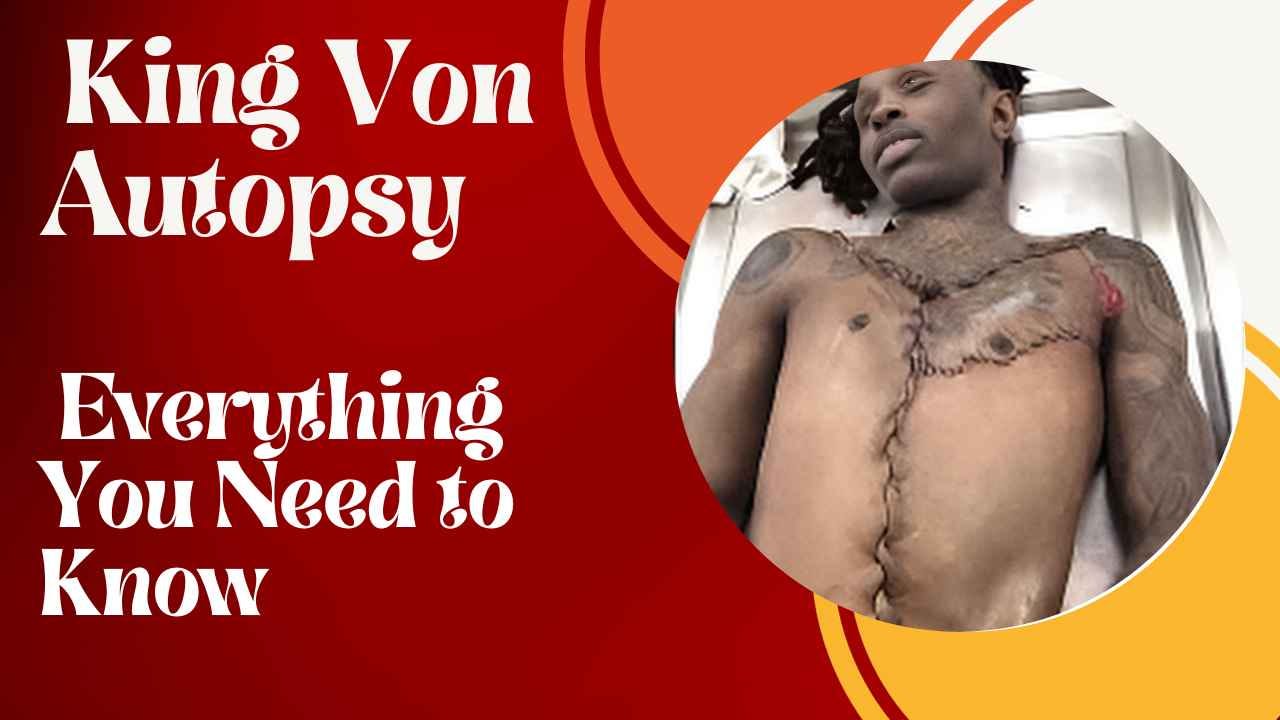Unveiling The Truth: The King Von Autopsy Report
The tragic death of rapper King Von in November 2020 shocked the music industry and his legion of fans. As investigations unfolded, the focus shifted towards understanding the circumstances surrounding his untimely demise, leading to the release of his autopsy report. This document not only sheds light on the cause of death but also provides insights into the events leading up to that fateful night. In this article, we delve into the specifics of the King Von autopsy report, its implications, and how it has shaped the narrative surrounding his legacy.
The King Von autopsy report serves as a vital piece of evidence that encapsulates not just the physical aspects of his death but also the social dynamics at play during his life. King Von, born Dayvon Daquan Bennett, had quickly risen to fame with his compelling storytelling and raw authenticity in his music. However, his life was also marked by controversies and legal issues that made headlines. The autopsy report brings a sense of closure, but it also opens the door to further questions about the environment that fostered such violence.
In examining the King Von autopsy report, we also reflect on the impact of his death on his family, fans, and the drill music scene. Fans continue to mourn the loss of a promising talent whose career was cut short. As we navigate through the details of the report, it is essential to remember the person behind the headlines—a young man with dreams, aspirations, and a profound influence on a generation.
What Was King Von's Background?
Dayvon Daquan Bennett, known professionally as King Von, was born on August 9, 1994, in Chicago, Illinois. He grew up in the O’Block neighborhood, which greatly influenced his music and storytelling style.
| Detail | Information |
|---|---|
| Name | Dayvon Daquan Bennett |
| Stage Name | King Von |
| Date of Birth | August 9, 1994 |
| Place of Birth | Chicago, Illinois, USA |
| Occupation | Rapper, Songwriter |
| Date of Death | November 6, 2020 |
| Cause of Death | Gunshot wounds |
| Notable Works | “Crazy Story,” “Took Her to the O,” “I Am Who They Say I Am” |
What Led to King Von's Death?
King Von was involved in a shooting incident outside a nightclub in Atlanta, Georgia, which resulted in his death. The altercation reportedly stemmed from a confrontation between rival groups, escalating into a lethal gunfight.
How Did the Autopsy Report Describe His Injuries?
The King Von autopsy report detailed multiple gunshot wounds. The medical examination indicated that he sustained at least three fatal gunshot wounds, which ultimately led to his demise. The report also described the trajectory of the bullets, providing crucial information about the violence that occurred that night.
What Are the Key Findings in the King Von Autopsy Report?
- Multiple gunshot wounds to the torso.
- Significant blood loss due to injuries.
- Gunshot wounds described as the cause of death.
- Additional findings related to blunt force trauma consistent with a physical altercation.
What Impact Did King Von's Death Have on His Community?
King Von's death sent shockwaves through the hip-hop community and his hometown of Chicago. Many fans and fellow artists mourned the loss of a talented rapper who had the potential to make a lasting impact. Moreover, it reignited conversations about violence in the rap community and the social issues prevalent in Chicago.
How Did Fans and Artists React to His Passing?
In the wake of King Von's death, fans took to social media platforms to express their grief and pay tribute to his legacy. Fellow rappers also shared their condolences, highlighting the sense of loss felt throughout the music industry. Memorials and tributes became common, demonstrating the profound influence King Von had on his fans and peers.
What Legacy Did King Von Leave Behind?
The King Von autopsy report serves as a sobering reminder of the fragility of life and the violence that can overshadow talent and ambition. Despite his tragic end, King Von's music continues to resonate with many, ensuring that his story and messages live on. His contributions to drill music and his storytelling prowess have solidified his place in hip-hop history.
How Can We Honor King Von's Memory?
Honoring King Von's memory involves recognizing his artistic contributions and advocating for change in the communities affected by violence. Fans can support initiatives aimed at addressing gun violence and fostering safer environments for young artists. Additionally, continuing to stream and share his music ensures that his legacy endures.
What Can We Learn from the King Von Autopsy Report?
The King Von autopsy report is not just a clinical document; it is a reflection of the societal issues that plague many communities. It reminds us of the importance of addressing these issues and supporting artists in their journeys. By doing so, we can aspire to create a world where talent is nurtured and protected.
Article Recommendations
- Aaron Eckhart Wife
- Scarlett Pomers Married
- Best Clone Troopers
- David Arthur Carr
- What Happened With Jesse Watters First Wife
- Christopher Daniel Barns
- Camilla Araujo Nides
- 15 Year Karmic Cycle Ending Meaning
- Juliette Norton
- Jan Bunch




